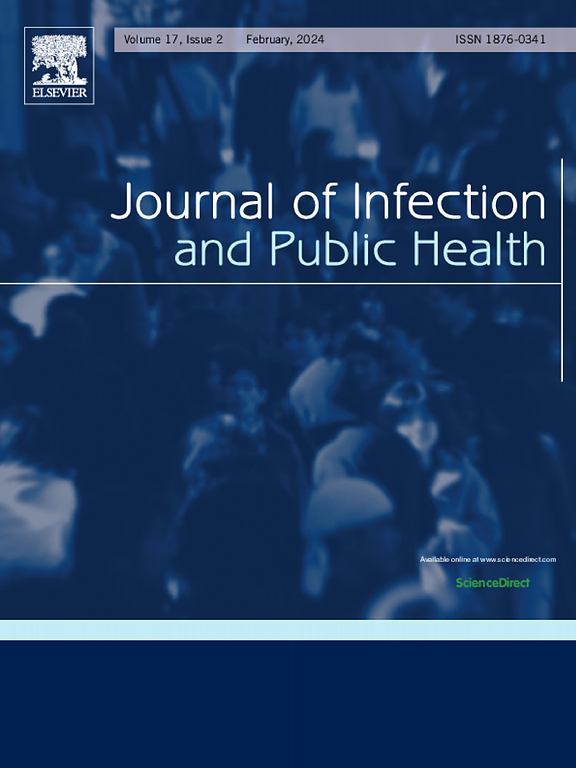Parental vaccine hesitancy: Recent evidences support the need to implement targeted communication strategies
IF 4.7
3区 医学
Q1 INFECTIOUS DISEASES
引用次数: 0
Abstract
In 2018, Europe experienced a surge in measles cases, revealing the consequences of suboptimal immunization coverage. This trend was exacerbated by long-standing vaccine hesitancy. Parental attitudes toward childhood vaccines have increasingly shifted, influenced by ethical, religious, and safety concerns. Vaccines hesitancy has substantially increased after the Covid-19 pandemic. Using PubMed, we reviewed cross-sectional studies, published during years 2023–2024, related to parents’ vaccine hesitancy, with the aim to provide an overview of its prevalence, underlying reasons and consequences for public health. Data summarised highlight various factors contributing to vaccine hesitancy. These include socio-demographic factors, the impact of the Covid-19 pandemic, and widespread misinformation, particularly through social media. Several cross-sectional studies show that vaccine hesitancy is often linked to lower education levels, misinformation, and decreased trust in healthcare systems. The pandemic exacerbated this issue. This article underscores the need for targeted communication strategies to address vaccine hesitancy, focusing on specific populations, such as those in low-income settings or with limited access to healthcare information. It emphasizes the importance of countering misinformation to improve vaccination rates and public health outcomes.
父母对疫苗的犹豫:最近的证据支持有必要实施有针对性的传播战略。
2018年,欧洲麻疹病例激增,暴露了免疫覆盖率不理想的后果。长期对疫苗的犹豫加剧了这一趋势。受伦理、宗教和安全问题的影响,父母对儿童疫苗的态度日益转变。Covid-19大流行后,对疫苗的犹豫大大增加。利用PubMed,我们回顾了2023-2024年间发表的与父母疫苗犹豫相关的横断面研究,目的是概述其流行程度、潜在原因和对公共卫生的影响。总结的数据强调了导致疫苗犹豫的各种因素。这些因素包括社会人口因素、Covid-19大流行的影响以及广泛存在的错误信息,特别是通过社交媒体传播的错误信息。几项横断面研究表明,疫苗犹豫往往与较低的教育水平、错误信息和对卫生保健系统的信任度下降有关。大流行加剧了这一问题。这篇文章强调需要有针对性的传播战略来解决疫苗犹豫问题,重点关注特定人群,例如低收入环境或获得卫生保健信息的机会有限的人群。它强调了打击错误信息对提高疫苗接种率和公共卫生成果的重要性。
本文章由计算机程序翻译,如有差异,请以英文原文为准。
求助全文
约1分钟内获得全文
求助全文
来源期刊

Journal of Infection and Public Health
PUBLIC, ENVIRONMENTAL & OCCUPATIONAL HEALTH -INFECTIOUS DISEASES
CiteScore
13.10
自引率
1.50%
发文量
203
审稿时长
96 days
期刊介绍:
The Journal of Infection and Public Health, first official journal of the Saudi Arabian Ministry of National Guard Health Affairs, King Saud Bin Abdulaziz University for Health Sciences and the Saudi Association for Public Health, aims to be the foremost scientific, peer-reviewed journal encompassing infection prevention and control, microbiology, infectious diseases, public health and the application of healthcare epidemiology to the evaluation of health outcomes. The point of view of the journal is that infection and public health are closely intertwined and that advances in one area will have positive consequences on the other.
The journal will be useful to all health professionals who are partners in the management of patients with communicable diseases, keeping them up to date. The journal is proud to have an international and diverse editorial board that will assist and facilitate the publication of articles that reflect a global view on infection control and public health, as well as emphasizing our focus on supporting the needs of public health practitioners.
It is our aim to improve healthcare by reducing risk of infection and related adverse outcomes by critical review, selection, and dissemination of new and relevant information in the field of infection control, public health and infectious diseases in all healthcare settings and the community.
 求助内容:
求助内容: 应助结果提醒方式:
应助结果提醒方式:


